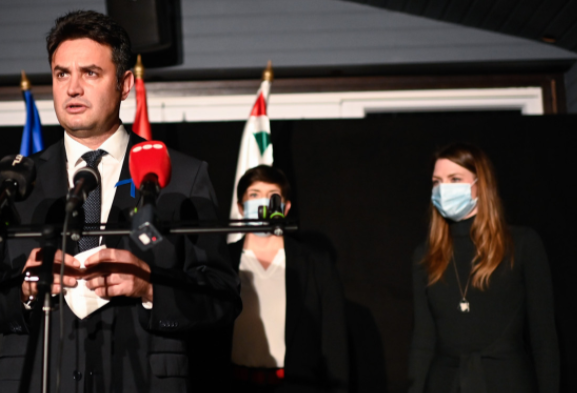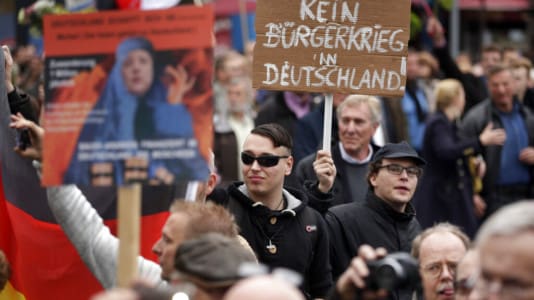With less than four months until the next general elections, the six Hungarian parties running a joint campaign against the ruling conservative Fidesz and Viktor Orbán are in growing disarray, a campaign insider told news portal 24.hu.
The source, speaking on conditions of anonymity, said that since last October when the opposition parties voted in a pre-election for their joint candidate, independent Péter Márki-Zay last October, things started going downhill.
“I see many things critically in the operation of the opposition since the pre-election: we have been in a bad spiral for weeks, we need to change communication, organization and especially speed as soon as possible, because there will be a comfortable Fidesz victory,” the politician said. “But as long as I’m worried, he (Márki-Zay) thinks we’re doing well, we don’t have to be impatient, we’ll win, don’t worry. We live in a completely different bubble, and we can’t connect with each other because we don’t perceive the same reality, it’s a serious problem.”
Within the opposition, the scope of the problems can be broken down into two main strands: a political one and a so-called staffing issue. What they have in common is that for both, the day after the pre-election is the starting point.
The end result of the pre-election not only surprised the parties, but shocked some of the leaders and activists, in the words of a Socialist politician.
The fact that Péter Márki-Zay beat Klára Dobrev in the second round — after (Budapest mayor) Gergely Karácsony stepped back in her favor — created a situation that none of the opposition actors expected.
“Everything was calibrated so that after a first-round Dobrev victory, Karácsony would finally win, with every party counting on it. Then in the last week, this story fell apart,” says an influential politician from one of the parties. “And the new situation has brought uncertainty and even distrust, even as on Oct. 23 all the prime ministerial candidates smiled happily on the opposition stage set up on Budapest’s majestic Andrássy Avenue.”
After the pre-election, each party had its own reasons for disappointment. The withdrawal of Karácsony meant burning a lot of money for those backing him, but even within the narrower staff, it caused a great deal of anger — not to mention for the MSZP — that Karácsony voluntarily left the competition before the second round.
The far-right Jobbik may have been shocked by the dropout of Péter Jakab, who ran an effective campaign in the countryside, but his online campaign was disappointing.
The centrist Momentum did not negotiate really well in the spring and summer anyway, and András Fekete-Győr ran a particularly weak campaign. And the green LMP’s biggest achievement was that it was invited to the opposition table at all, giving it hope for a faction in the next parliament that it could hardly achieve on its own.
Delegates from several parties told 24.hu: that the staff of the prime ministerial candidate Márki-Zay consists of “reliable and benevolent amateurs” who are now conducting a nationwide campaign for the first time. Moreover, both Márrki-Zay and his staff suffer from a kind of “program fetishism.”
“It was said to have the program first, then to be more visible to the public. This should not necessarily have been separated, but it turned out that way,” one insider said. “Meanwhile, everyone asked us why we were no longer doing anything visible, and we were in December on the introduction of the euro and VAT. And that was the decision of the prime ministerial candidate, basically, not the parties wanted it that way. Péter Márki-Zay requested changes to our joint program, which was completed before the pre-election, at dozens of points. That’s why we had to re-open a box we thought was already sealed.”
Hungary will hold general elections on April 3.






